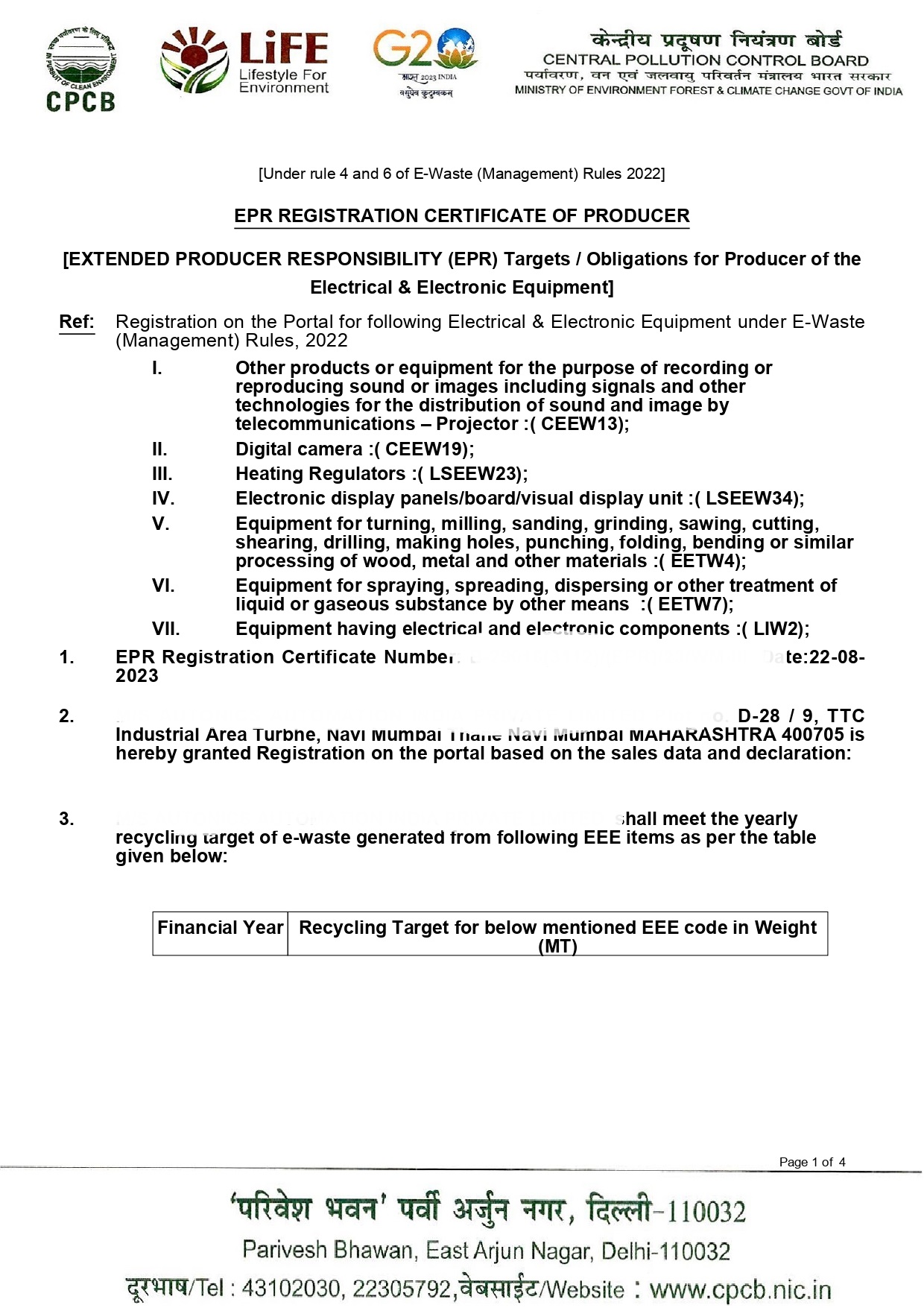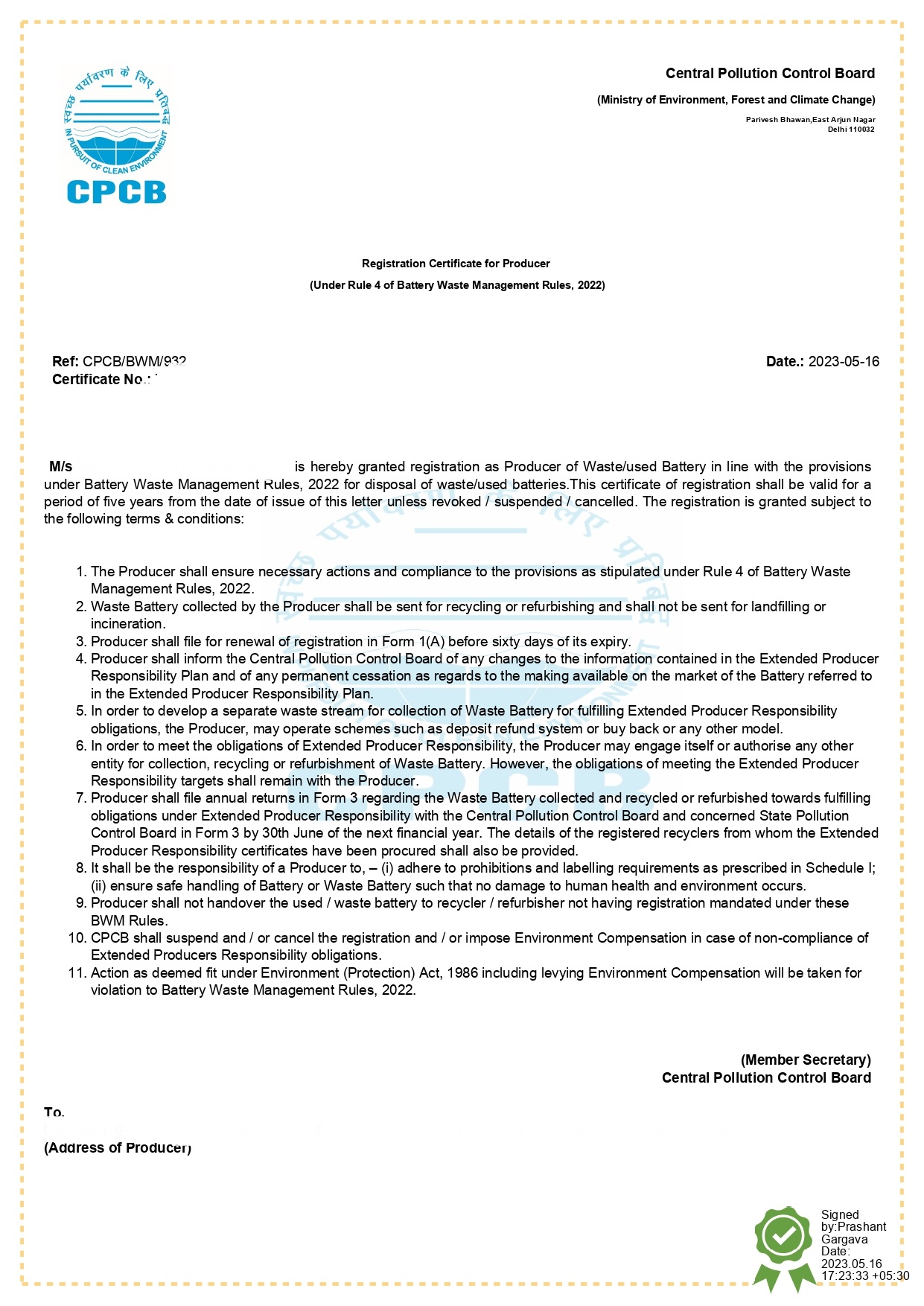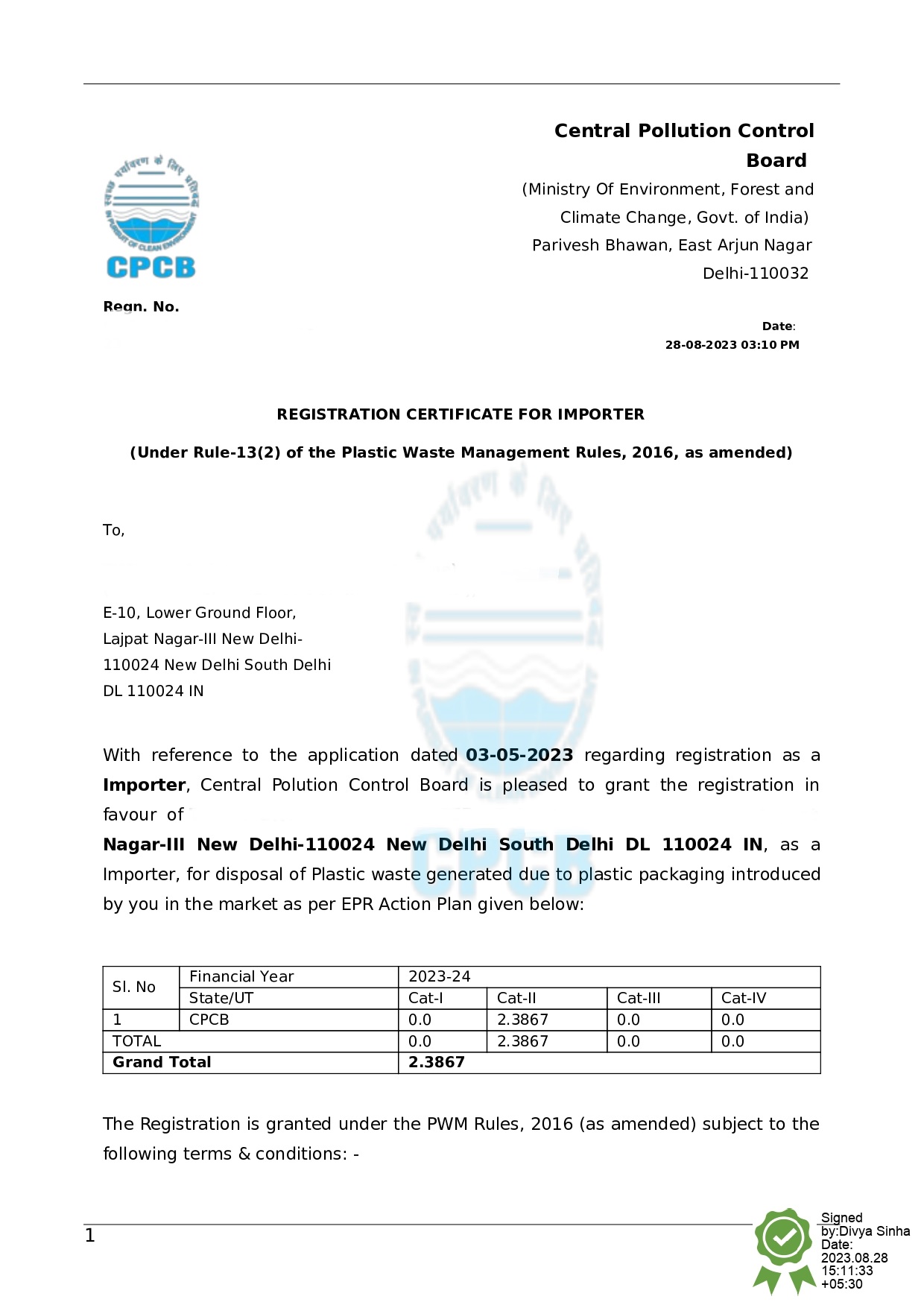EPR Authorization
Extended Producer Responsibility (EPR) is a policy approach that places the responsibility for the end-of-life disposal of products on the producers or manufacturers. In India, the EPR framework is designed to ensure that producers take responsibility for the entire lifecycle of their products, including their environmentally sound disposal or recycling. This helps in reducing the environmental impact of products and encourages more sustainable production and consumption practices.
The EPR Certificate in India is a document that certifies a producer's compliance with the EPR regulations. It signifies that the producer has fulfilled their obligations related to managing the post-consumer waste generated from their products in an environmentally responsible manner. This includes collecting, transporting, recycling, and disposing of the waste in compliance with the government's guidelines and regulations.
To obtain an EPR Certificate in India, producers need to follow a set of procedures, which may include:
- Registration: Producers need to register themselves with the relevant regulatory authorities responsible for waste management. This involves providing details about their products, production quantities, and other relevant information.
- Implementation Plan: Producers are required to submit an implementation plan detailing how they will manage the end-of-life products. This plan should outline the collection, recycling, and disposal strategies.
- Financial Provision: Producers often need to set aside a financial provision to ensure funds are available for the waste management activities outlined in their implementation plan.
- Reporting: Regular reporting on the progress of waste management activities and compliance is a crucial aspect of EPR. Producers need to submit periodic reports to regulatory authorities.
- Audit: Periodic audits may be conducted to ensure that the producer's waste management activities align with the implementation plan and comply with regulations.
- Renewal: EPR Certificates typically have a validity period, and producers need to renew them as required by the regulatory authority.
The specifics of the EPR Certificate process can vary depending on the type of products, regional regulations, and the specific regulatory body overseeing the process. Producers often work with consultancy firms or experts specializing in environmental regulations to ensure smooth compliance and certification.
It's important to note that the information provided here is based on the situation up until September 2021, and there may have been developments or changes in the EPR regulations in India since then.
Documents Required for EPR Authorisation in India
- GST Certificate
- Importer Exporter Code (IEC)
- KYC of authorised signatory and company signatory
- NOC or Consent Letter from State Pollution Control Board
- Proof of premises
- Products details
- PAN Card
Sample Certificate


